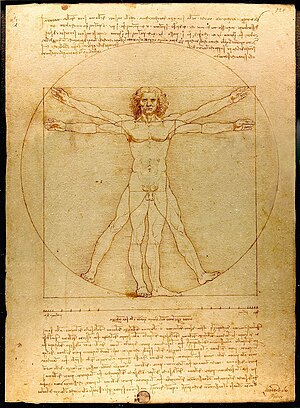
Wednesday, March 6, 2013
astro picture for the day
Image Credit & Copyright: Terry Hancock
Quote for the day,
"By studying Eloquence we cultivate reason itself." - Rector Rosted
One observation of mine from reading all kinds of history of mathematics is that most were language masters at a young age; i like to joke that mathematicians are the ones who got bored with language and philosophising and went on to mathematics.
There's also the famous Einstein quote that "elegance is for tailors." This was Einstein's criticism of mathematians; on the other hand, Einstein's getting help from mathematians is a famous historical issue. Before Einstein did his special relativity, Henri Poincare had thought of the shift in space and time dimensions(but not spacetime; that was done by a Grossman If i'm recalling correctly; another mathematician; also, I'm forgetting the name of another who thought about shifts in space and time before Einstein). And when Einstein went to work on General Relativity, David Hilbert did much of the mathematics at the same time. Some say David Hilbert did the mathematics but gave Einstein the credit anyways just for thinking of the idea. There's more to be said. Point is despite Einstein's not to shabby mathematical ability, he never had a feel for mathematics and never solved mathematical problems. I point this out because to be a mathematician takes a lot of different elements to come together. For instance, in the mathematical physics of the discovery of the solar system by Tycho Brahe and Johannes Kepler, you had two guys doing two different stages of the development; one did the experiments/observations mathematically(Tycho Brahe had a gold nose from a duel over "who's the better mathematician"; don't know who shot off his nose, but Tycho clearly went on to do better things), and the other did the theory to make sense of the data - Kepler. Tycho Brahe was actually jealous of the mathematical ability of Kepler(as was Galileo). The problems of why people(humans who are technologically dependent and hence scientifically dependent) don't learn to become mathematicians and to hate it and turn to some make belief god comes from how multifaceted mathematics is, and the fact that mankind has evolved from ignorance; people have often not wanted to embrace learning because of some taboo or another; or fear of loosing their fear and anti-learning friends. Rector Rosted came from a society that was struggling with all these social issues of reason vs faith/social upbringing back in the early 1800s.
I got this quote from Arild Stubhaug's "Niels Nenrik Abel". The book is well written, but short on mathematics(it seems to be picking up . . . two hundred pages after tons of social political issues; he even proves the infinitude of primes; i'm hoping for more;). It's been more interesting from the standpoint of a society struggling with reason vs faith. Norway was battling with whether to combine with Sweden and Denmark or not(as was Denmark and Sweden). The Scandenevians know full well that they are all related, but they're fighting each other for who's going to rule the world anyways(Denmark had already lost to the English after Denmark was starting to rule the seas and trade in a mighty sea battle). Niel's Henrik Abel turns out to have family going back to royalty of Norway. But, due to Niel's father's effort to make a rational enlightenment period christianity, his family was disgraced. But, Niel's family had already done enough to make a university and bring in enough mathematical classics for Niel to learn from. One more historical note is that Niel goes to school right after the Normans decided that beating children to death is not the best way to teach people anything. Before Niels entered school, a kid had been beaten to death. This news maybe didn't make the Normans look to good to the cultured French south of them. And the French culture makes this whole story of the Nordik society and Niels Abel even more interesting.
I had noted before that the French seem to be the more successfull intellectual society; they've been able to crank out the most mathematians consistently for the longest time at least since the Renaissance. But, their intellecual tradition goes back at least to the eleven and twelve hundreds A.D. with the building of the great Cathedrals. The French took to intellectualism and rationality(and struggled with rationality versus faith issues) perhaps earlier than just about anyone. This was due to the translations of Arab texts of Greek mathematics back in Arab Spain around 1000 A.D.
The French tried to make a similar revolution that the Americans did, but went into a Reign of terro instead. It's an interesting social phenomenon that I'm not sure anybody understands yet. But, the French culture and revolution had a powerfull affect on Nordik culture. They likewise wanted to be cultured; and likewise, they also struggled with whether to be rational or somehow fudgefactor rationality and faith. The Abel family went from royalty to poor because of this. Niels Abel's father was torn to bits because he combined rationalty with christianity. But, Niels Abel got enough of the mathematical spirit to become one of the greats of all time.
Niels Abel proved the binomial theorm in general as oppossed to just negative numbers, or just fractions. This is something Newton and Leonard Euler failed to do. Niels also did some work in real analyses and even integral equations(as oppossed to differential equations). Niels also proved the impossibility of solving algebraically the fifth degree equation. Most people have probably seen the quadratic formula. This is the general solution to the second degree equation. There's a similar general closed form solution to the third and fourth degree equations(solved in the early 1500s by a Cardano and Ferrari respectivelly). But, the fifth degree resisted solution all the way to the 1800s where it was proven first by Niels and then Galois to be in general not solvable. Niels Abels' proof just proves their's no quadractic formula like solution to the fifth degree. Galois practically invented abstract algebra(groups and fields; rings come form number theory) to disprove the fifth degree equation. Niel's Abel before his death around 27 years old started to hint at a calculus solution to the fifth degree(Galois likewise died at an even younger age in a duel over politics; it's been noted that the natural successors to Frederick Gauss died before their twenties). In the calculus, there's derivatives and anti-derivatives; as it turns out, you can't always find the anti-derivatives by elementary functions. Niels Abel showed how to come up with inverted elliptic integrals or elliptic functions. He went on to generalise to Abelian integrals. Mathematicians soon took these hints and related them to algebraic geometry; they solved Galois theory and number theory problems with elliptic functions just like the Newtonican/Liebniz calculus unified and solved algebra, geometry and trigonometry problems that were hard before the calculus. The whole relationships between calculus(elliptic and abelian functions) and algebra, number theory, and algebraic geometry was the core pattern of mathematics from Niels Abels initial hint through the twenty first century. Some would say that with the solving of the Poincare conjecture recently, we're entereing into a new level of mathematics; we're just now moving past the Abelian stage of mathematics.
There's more to higher mathematics that most people don't know about - Lie theory. I recently bought Arild Stubhaug's histories of Niels Abel and Sophus Lie because I noticed I could get them for twenty dollars each. I had bought a great book on the history and mathematics of Emmy Noether back around 1996-7 or thereabouts. I bought it in Port Townsend, Seatle area. It was a nice little used book store. I looked it up on amazon and noticed this great book was going for five hundred dollars! I'm so glad I bought that book when I did! So, when I noticed these two books about these two highly influencial mathematicians, I just had to buy them! So, I'm wasting time(sort of; it's always good to read!) trying to knock these two books out(again putting off finishing some real mathematics books;). Well, the philosophising is somewhat worth it; i think!
------------------------------------------science/technology extra?
There's of course all kinds of quantum computing breakthroughs. I'm hearing there could be a big announcement from Ting about dark matter; they hinted at it a week ago, and said in two weeks or so, there could be a big dark matter breakthrough.
But, in nanomanufacturing, there's been more hints at when the real nanorevolution could happen. It's been realized for awhile now that untill the process of picking up an individual atom and another and bringing them together mechanically is settled, one shouldn't worry to much about making small nano-manipulators. Once it's done, then one can design around the principles. Well, recently, I saw a little remark that they could around three to six years be able to make nanocomputers with trillions of transistors made out of dna and the ability to preciselly place individual atoms in various dna nanobricks to make them stronger and perform their functions precisely. I really can't say who I think could do this.
Subscribe to:
Post Comments (Atom)

No comments:
Post a Comment